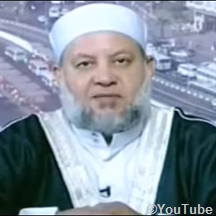
If the muhaditheen agree a hadith is weak, then the fuqahah do not classify it as hassan.
Shaikh Ata abu Rishta argues the issue revolves around weak hadith that scholars of hadith disputed in the classification whereby some would consider it as weak and cannot be used as evidence, while others approve it as evidence.
This is because some narrators are considered as trustworthy by some muhadiths, but are considered as not trustworthy by others, or that the narrators are considered as unknown by some muhadiths, but as well-known by others. Also some ahadith are taken as sahih from a chain but as not sahih from a different chain.
The muhadith who finds an unknown narrator in the chain of a ahadith will consider that hadith as weak and not fit to refer to as an evidence. But on the other hand if this unknown narrator's identity is revealed and is seen to be a trustworthy narrator, the hadith will be fit to use as evidence. If a muhadith sees that it is was not possible for one of the narrators to hear the hadith from the previous narrators, then the hadith will be classified as weak because there is an interruption in the chain, but if a muhadith can prove that there is no interruption in the chain and that the narrations reached all the narrators then the hadith is considered hassan and is used as evidence.
Some examples of such disputes are as follows:
Abu Dawood, Ahmad, Nasa'i, Ibn Majah and Tirmithi narrated from Abu Huraira (ra):
«سأل رجل رسول الله r فقال يا رسول الله. إنا نركب البحر ونحمل معنا القليل من الماء فإن توضأنا به عطشنا أفنتوضأ بماء البحر؟ فقال: هو الطهور ماؤه الحل ميتته»
"A man asked the Prophet ﷺ and said, 'O Messenger of Allah, we ride the sea and carry little water, if we use it for Wudu we will become thirsty, can we use the sea water for Wudu?' He ﷺ said: 'Its (sea) water is pure (Tahir) and its dead (animals) are permitted.'"
Tirmidhi related that this hadith is correct (sahih) by Bukhari. Hakam Ibn Abd Al-Bar spoke of its correctness due to the acceptance of this hadith by the scholars. Ibn al-Munthir said it is Sahih Hadith and Ibn Al-Aseer said in Sharh Al-Musnad: This hadith is Sahih and Mashoor, extracted by the Imams in their books and they used it as evidence and its narrators are trustworthy. As-Shafi'i said that in the chain of the narrators of this hadith, there is an unknown narrator to him. Ibn Daqiq Al-Eid mentioned the ways why this hadith is not used as evidence; this includes the lack of information regarding Saeed Ibn Salama and Al-Mugheera Ibn Abi Barda who are mentioned in the chain of this hadith, while these two narrators are known according to some muhadiths. Abu Dawood said: Al-Mugheera is known, this is confirmed by Nasa'i. Al-Hafith said: therefore from this it is incorrect someone claims that he is not identified and unknown. As for Saeed Ibn Salama, he followed Safwan Ibn Salim's narration regarding Al-Julah Ibn Katheer.
Another example: Ahmad narrated from Saad Ibn Abi Waqas that he said:
«سمعت النبي r يسأل عن اشتراء التمر بالرطب فقال لمن حوله أينقص الرطب إذا يبس؟ قالوا نعم، فنهى عن ذلك»
"I heard the Prophet ﷺ enquiring about buying Tamr for Rutab (two forms of dates), He ﷺ asked those around him: 'Does the Rutab (fresh date) shrink when it dries up?' They said yes. He ﷺ prohibited that (action)."
This hadith is sahih by Bukhari, but was not accepted by a group including At-Tahawi, At-Tabari, Ibn Hazm and Abdul Haq, due to the presence of Zaid Ibn Ayash in its chain of narrators who is considered unknown. In the conclusion of the answer, he said that Ad-Darqitni said that he is a confirmed trustworthy (meaning Zaid Ibn Ayash), Al-Munthiri said: that two trustworthy narrators have narrated from him and they were accepted by Malik who is known for his extreme criticism.
Such Hadiths that are disputed in their classification as weak, they are the ones referred to by the Mujtahids, or to their followings and witnesses that increase their strength, rendering them fit to be used as evidence. Note that not every weak hadith is subject to search for its followings and witnesses to strengthen it, or that it is subject for search to find if it was used by Mujtahids, there are weak hadith that cannot be strengthened by anything, this is because the weak hadith is divided into two types:
- A type that is not used and is not strengthened by any followings and witnesses.
- A type that is strengthened by any followings and witnesses and is used by renowned Mujtahids and Faqihs.
This is only for the issue related to Hadith that is disputed as weak by the Muhadiths not the Hadith that is agreed by all as weak. This latter one would not be considered if it was mentioned as weak in the books of the renowned Mujtahids or Faqihs, even if we assume that it is mentioned there for the sake of argument, it will still be weak and I say "for the sake of argument" because the renowned Mujtahids or Faqihs do not use the weak Hadith that is agreed upon that it is weak.
What we provide!
Vote Content
Great answers start with great insights. Content becomes intriguing when it is voted up or down - ensuring the best answers are always at the top.
Multiple Perspectives
Questions are answered by people with a deep interest in the subject. People from around the world review questions, post answers and add comments.
An authoritative community
Be part of and influence the most important global discussion that is defining our generation and generations to come